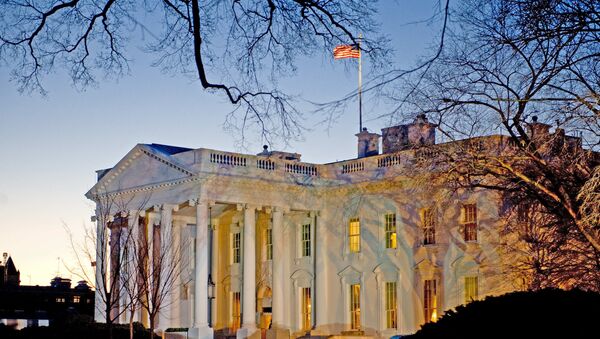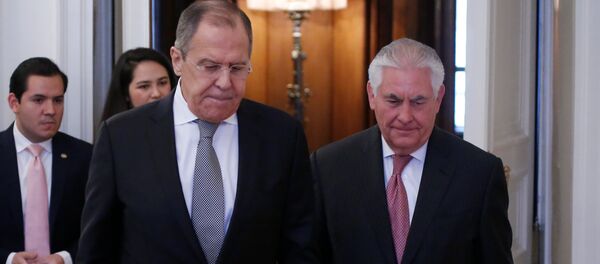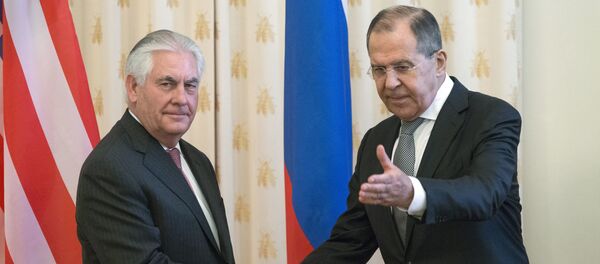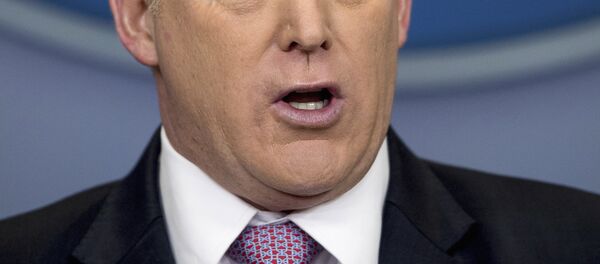The talks were focused on the current state on relations between Washington and Moscow and such issues as the crisis in Syria, the recent chemical weapons incident in Idlib, disarmament and the fight against terrorism.
Lavrov concluded that the Tillerson's visit to Moscow comes at the right time and is a "good opportunity to clarify the prospects of cooperation."
Tillerson responded by saying that the meeting with Lavrov gives the US the opportunity to discuss differences in bilateral relations and even narrow them.
"This meeting comes at an important moment in our relationship, so that we can further clarify areas of common interest. We can better understand why the differences exist and what the prospects to narrow them are," Tillerson said ahead of the talks.
According to Vladimir Vasilyev, a senior research fellow at the Institute for American and Canadian Studies, at the Russia Academy of Sciences, the diplomatic task of the talks was fully completed.
"The diplomatic mission was accomplished. A signal was sent to the world that there is a certain course on US-Russia normalization, as it was proclaimed during Donald Trump’s electoral campaign. The talks prove that Washington is not abandoning this policy," Vasilyev told Radio Sputnik.
As for practical matters discussed at the talks, serious differences remain, especially on Syria, according to the expert.
At the same time, he noted, Washington’s propaganda campaign over chemical weapons in Syria "stumbled" upon White House Press Secretary Sean Spicer’s remark comparing Syrian President Bashar Assad to Adolf Hitler.
The remark shocked even those accustomed with Spicer’s gaffes and manipulation of facts and sparked outrage. As a result, the press secretary offered apologies, calling his remarks "inexcusable and reprehensible."
"When Spicer compared the Idlib chemical attack to Nazi Germany’s atrocities the following outrage nullified all of Washington’s propaganda attempts over Syria, at least within the US. This reckless remark destroyed the gains the US wanted to draw from its missile strike on Syria. Maybe now Washington understands that it is impossible to play this card and keep demonizing Assad. Maybe, this remarks had a sobering effect for the US presidential administration," Vasilyev concluded.
Never miss a story again — sign up to our Telegram channel and we'll keep you up to speed!






